Quite often I come across a nice looking or functional website, and wonder what technology was used to create it. What techniques are available to figure out what a particular website was built with?
Few frameworks seem to include any kind of generator meta tag like web editors do. Are there any tell-tale signs of particular languages and/or frameworks?
Summary of answers
Site URLs may betray the framework and/or programming language but cannot be relied upon (e.g. file extensions such as .asp). HTTP response headers, cookies, stylesheets and source comments may also give clues.
Some nice tools for querying site details (no doubt there are many more):
Firefox addons:
- Wappalyzer - CMS, frameworks/libraries, e-commerce, message boards etc.
- Domain Details - IP, country and webserver details
- Library Detector - Javascript libraries in use
Chrome Extensions:
Bookmarklets:
- WTFramework - shows Javascript framework in use
